Tech-enabled Brand Protection
Brand Protection is more than just removing fakes. It’s a modern must-have for any online presence. Abion combines innovative technology with a unique platform and in-house expertise, handling everything from monitoring to enforcement.
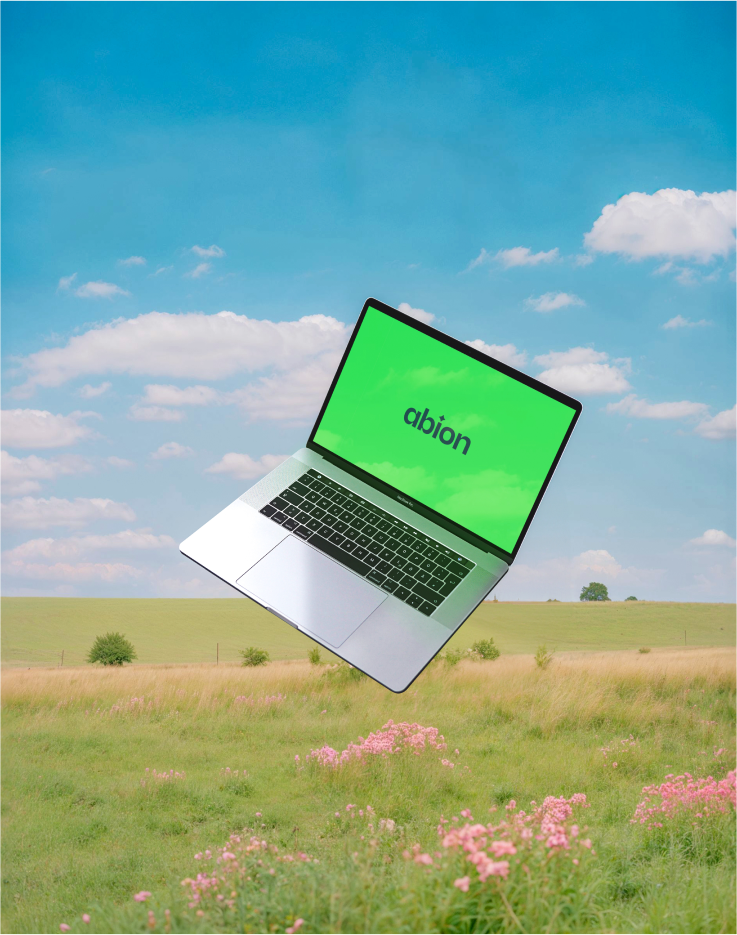
Safeguard Reputation
Prevent brand damage and maintain growth with satisfied customers.
Customer Care
Shield customers from harmful counterfeits and scams to ensure their satisfaction and trust.
Revenue Protection
Proactively address counterfeiting to avoid losing revenue.
360-degree protection for your brand
- Marketplace Watch
- Domain Monitoring
- Social media Watch
- App & NFT Watch
- Search Engine Watch
- Web Content Watch
- Takedown Services
- Enforcement against phishing attempts
- UDRPs
- URS
- DRP
- RDRS

Daniel Zohny, Global Head of Brand Protection
“Leveraging business intelligence tools, we elevate your strategy beyond brand protection to sharpen decision-making and elevate your market stance, all with clear, efficient execution.”

The technology and expertise to globally safeguard your brand
We don't just stop at recommendations – but also take proactive steps to swiftly protect your brand's digital and physical presence.
- A network of global experts for localised brand protection advice.
- Advanced technology platforms for monitoring, managing, and securing digital assets.
- Complete solution from one provider – everything from registration through to enforcement and litigation.
Why you need Brand Protection
Brand Protection is the combination of online brand monitoring and enforcement activities.
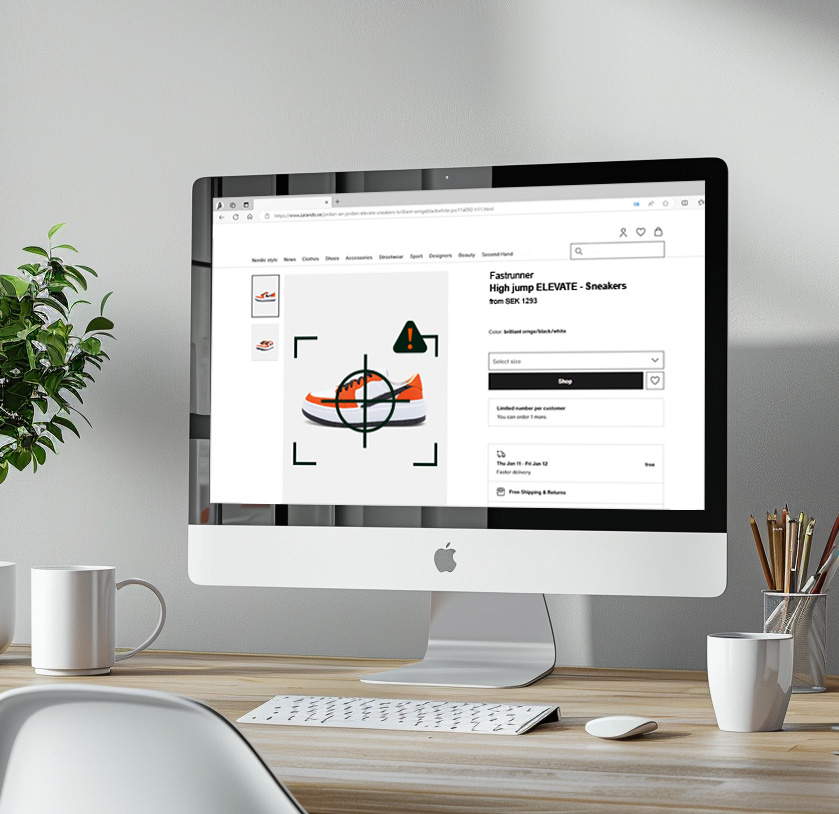

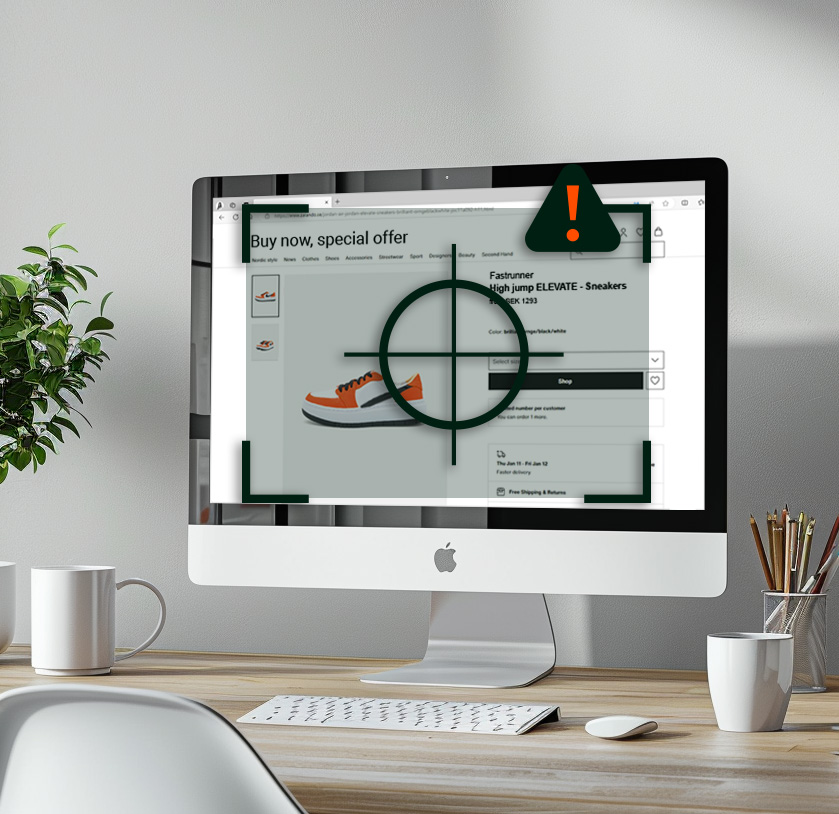
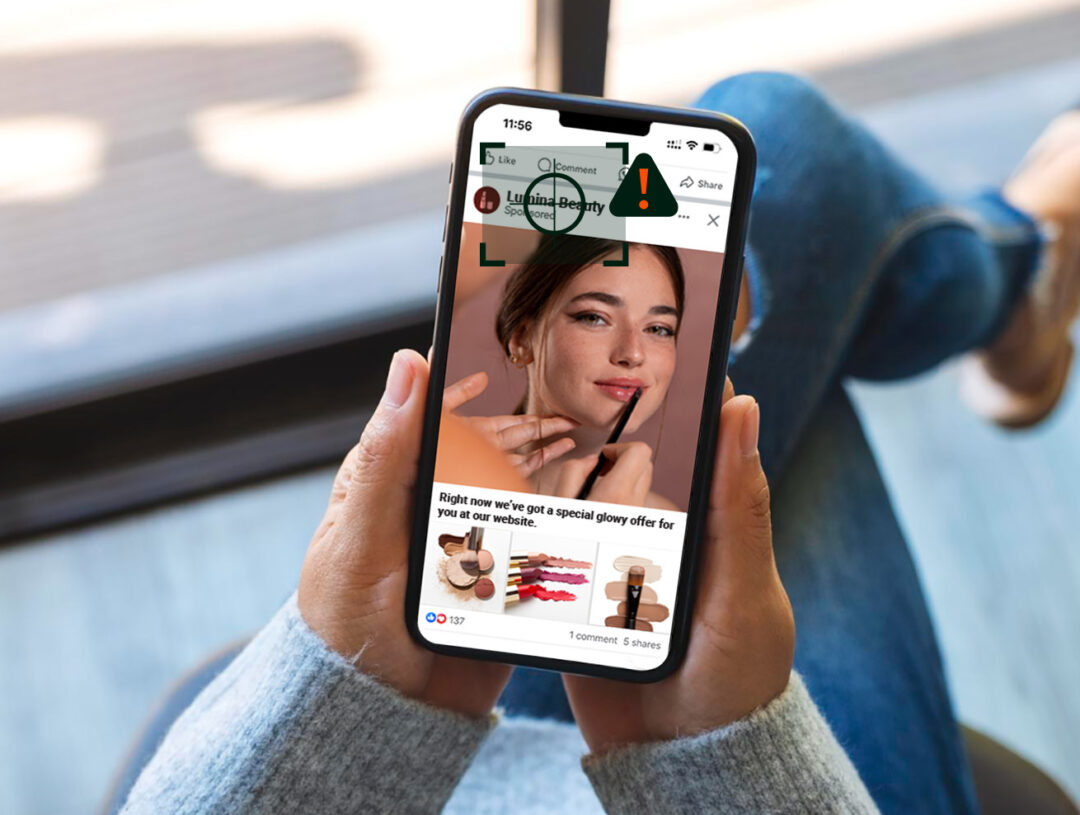
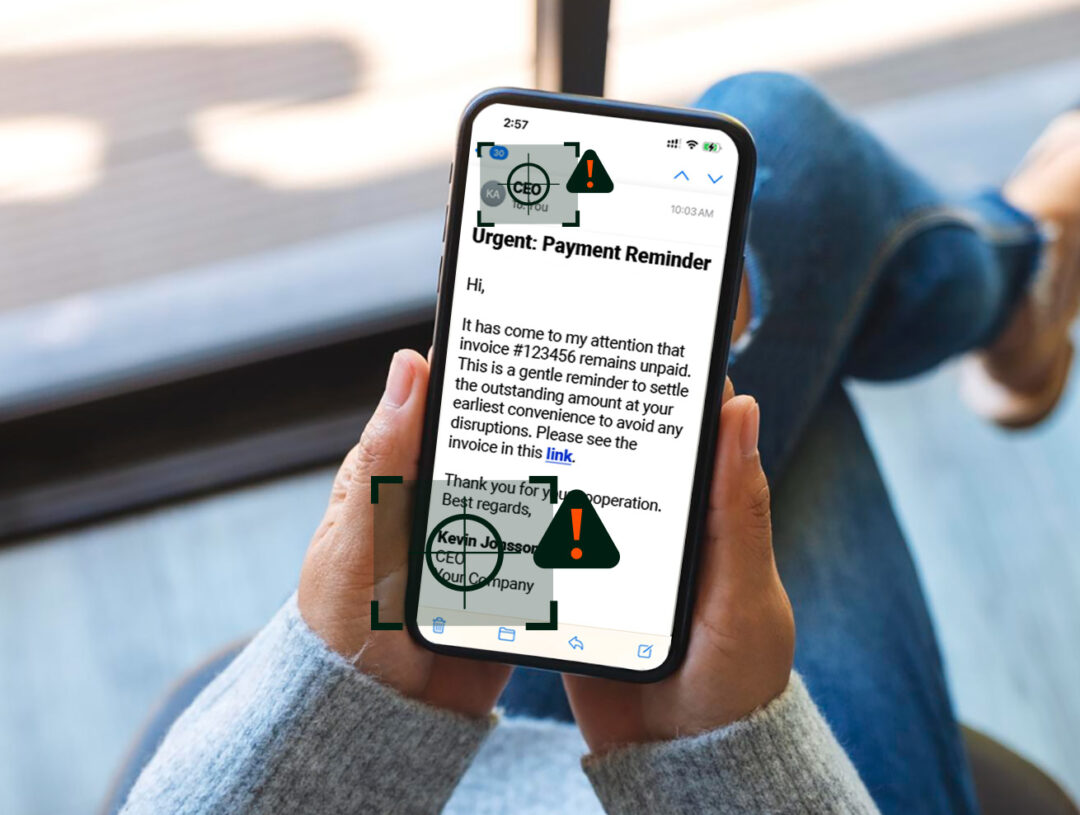
Different types of brand infringement
Intellectual property infringements specifically involves unauthorised and damaging activities on the internet. Here are some of the key examples of online brand infringement:
This involves the sale of counterfeit goods through online platforms, where unauthorised sellers replicate or imitate the company's products, often infringing on trademarks and copyrights.
Registering or using a brand's trademark that closely resemble a legitimate brand's domain to mislead users or profit from the brand's reputation.
Creating fake websites that imitate a legitimate brand's site to deceive consumers, for example to sell fake or non-existing products, often also involves cybersquatting.
Setting up fake profiles or fake social media accounts to mislead or engage in fraudulent activities.
Sending deceptive emails that appear to be from a legitimate brand to trick recipients into providing sensitive information.
of all imports in 2019 into the EU consisted of fake goods.
of Europeans have wondered whether something they’ve bought is genuine or a counterfeit.
of Europeans report that they have been misled into buying counterfeits.
How counterfeits affect your customers
Imagine your customers searching for their desired product online. They type the product into a search engine and a number of counterfeit items on copycat websites are shown in the search results. As they all look so convincing, the customer clicks on one and unwittingly buys a fake, trusting they're authentic.
These infringing products often lead to a bad customer experience, affecting not only your brand and you as a brand owner, but also your company's reputation and profits.
Start with Online Threat Report & Consultation
Our Online Threat Report scopes out your vulnerabilities to identify which platforms require monitoring. We conduct a deep investigation across all channels. Within 5 working days you'll receive a comprehensive report, followed by meeting with a Brand Protection Specialist.
Where is your brand exposed?
Trademark
Watch
Domain
Monitoring
Marketplace
Watch
Social Media
Watch
Web Content
Watch
Search Engine
Watch
APP & NFT
Watch
We sell our products online
We have an active social media presence
We have issues with unauthorised resellers on various platforms
Our brand elements are used incorrectly or inappropriately by others
Our business depends significantly on our app
We have issues with social media ads infringing on our trademarks and copyrights
We have issues with unauthorised use of our content by other parties
How we work
Taking care of the whole process
SERVICES
The foundation of Brand Protection
SERVICES
Based on your needs, add the following services
Benefits of Brand Protection with Abion
- Our intellectual property office cover all of your brand protection needs, from registering to monitoring and enforcement
- Manage all your IP Rights on our platform, no need for multiple vendors and solutions
- No middle-men, all service from one provider

Get started with an Online Threat Report
We scope out your vulnerabilities and identify which platforms require monitoring.
What makes Brand Protection important?
As a brand owner it is crucial to protect your brand and uphold consumer trust, prioritise brand protection technology and monitoring. This means safeguarding your trade marks, copyrights, patents, and designs from online threats and unauthorised use. Brand protection teams are essential, using technology and legal strategies to enforce your rights and ensure customer satisfaction. A proactive approach in the digital world helps maintain brand integrity and drives confidence, with business intelligence guiding effective protection efforts.
Online reputation management is key to brand protection, involving:
- Monitoring and managing your brand's presence across social media, review sites, and search engines.
- Quickly addressing negative incidents to maintain brand reputation.
- Protecting your online presence as consumers increasingly rely on digital information for purchasing decisions.
Key Components of an Effective Brand Protection Strategy
A solid brand protection strategy is key to defending against online threats and securing your brand’s assets. Essential elements include monitoring, enforcement, and a strong legal framework. With automated detection and services like Abion's, brands can protect their reputation from counterfeit goods and other online risks. Adding cybersecurity and domain protection strengthens your defences even further.
Advanced Brand Protection Technologies
Sophisticated brand protection technologies are instrumental in protecting brands from online threats. Technologies such as artificial intelligence (AI) and machine learning provide greater intelligence, market insights, and competitor benchmarking, enhancing monitoring and detection capabilities. By leveraging these advanced technologies, brands can stay ahead of potential threats and protect their reputation more effectively.
AI and machine learning can:
- Flag accounts and identify links between them
- Learn from experts’ actions and recommend steps for mitigation
- Surface over 70% more threats that might otherwise be missed
- Provide brands with a comprehensive reports and overview of potential risks
- Enable brands to take proactive measures to safeguard their assets
The information and reports from such technologies can often be overwhelming. That is why it is advisable to use experts, like Abion, who can analyse the data and then provide insight and strategic recommendations as to how best handle the risks/infringements.
Image Recognition
In the battle against counterfeit products and unauthorised use of brand assets, image recognition technology serves as an effective weapon. By analysing visual content such as logos, product images, and promotional content, image recognition tools can identify counterfeit products that closely mimic genuine items. These tools compare the visual data with a database of authentic brand images to find discrepancies and report potential counterfeits.
In addition to identifying counterfeit products, image recognition technology also detects unauthorised use of brand assets, such as logos and copyrighted images, to prevent brand abuse and ensure rights are protected. By leveraging image recognition technology, brands can feel confident that their visual assets are safeguarded against misuse.
Case Management Systems
In maintaining a complete overview of brand protection services, case management systems like Abion Core are vital, facilitating the organisation and execution of enforcement actions. These systems streamline the process, making it more efficient and allowing brands to respond promptly to infringements. By utilising case management systems, brands can ensure that enforcement actions are carried out effectively and in a timely manner.
The use of efficient case management systems is indispensable for maintaining brand integrity. These systems help brands keep track of ongoing cases, manage communication with stakeholders, and ensure that all enforcement actions are documented and followed through. By streamlining enforcement actions, case management systems play a vital role in protecting brands from counterfeit threats.

Industry-Specific Brand Protection Solutions
Unique challenges concerning your intellectual property and brand protection technology are prevalent across different industries. Industry-specific brand protection services address these challenges, ensuring that tailored strategies are in place to combat counterfeiting and infringement. Two industries that are particularly vulnerable to these threats are the pharmaceutical and fashion industries.
In the pharmaceutical industry, counterfeiting can lead to regulatory breaches and endanger public health. Implementing robust anti-counterfeiting measures, such as secure packaging and unique identification codes, is crucial to safeguard pharmaceutical products.
In the fashion industry, design infringement and the proliferation of counterfeit goods are major concerns. Fashion companies should adopt strategies like design patents, trade mark registrations, vigilant market monitoring, and a robust supply chain to detect and address any infringing activities swiftly.
Pharmaceutical Industry
The pharmaceutical industry faces significant risks from counterfeiting, which can lead to severe consequences such as regulatory breaches and threats to public health. With hundreds of thousands of suspect accounts or groups related to pharmaceuticals identified on social media platforms like Facebook and Twitter alone, the scale of the problem is evident. Pharmaceutical companies need to implement comprehensive brand protection services to manage these risks effectively.
These strategies often include robust anti-counterfeiting measures such as secure packaging, unique identification codes, and advanced tracking technologies. By ensuring that every product can be traced through the supply chain, pharmaceutical companies can mitigate the risks of counterfeiting and ensure compliance with stringent regulatory requirements. This not only protects consumer safety but also maintains the integrity of the brand.
Fashion Industry
In the fashion industry, counterfeit footwear and apparel are major components of the global counterfeit trade, sometimes constituting up to 10% of branded goods. This industry, both in e commerce and in stores has high vulnerability to design infringement and infringing goods necessitates vigilant market monitoring and enforcement actions. Design infringement involves the manufacture of goods using patented design features to create unauthorised versions of products, which can severely impact brand reputation and revenue.
To combat these threats, fashion brands must adopt strategies like design patents, trade mark registrations, and both physical and online product takedowns. These measures are crucial due to the difficulty in controlling physical shipments in the fashion industry. By implementing these strategies, fashion companies can protect their designs, maintain brand integrity, and ensure that consumers receive genuine products.
Key Takeaways
- Prioritising brand protection is essential for maintaining reputation, revenue, and consumer trust, involving continuous monitoring to safeguard intellectual property and proactively detect threats.
- Common online threats to brands include counterfeit products, rogue websites, and fake SoMe accounts.
- An effective brand protection strategy to be fully protected integrates monitoring and detection technologies, enforcement actions, and a robust legal framework to safeguard against infringements and preserve brand integrity.







